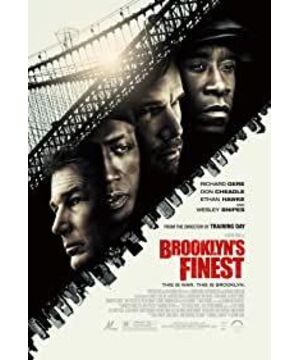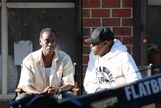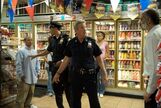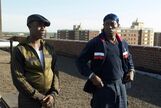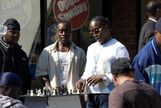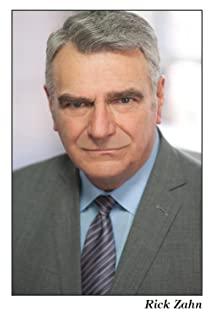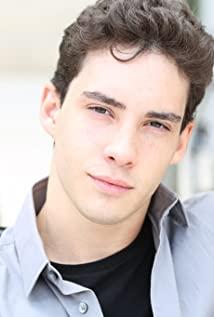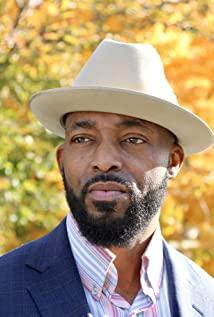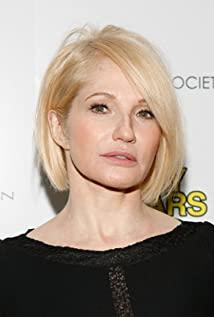Everyone has their own criteria for judging what is right. Although morality and law are the result of the intertwining of the values of hundreds of millions of people, after cutting off the thick shell, what is left is nothing more than vagueness and no judgment. Human beings are complex creatures, so clear affairs and reason can never unify everything. This is also the inevitable value of perceptual existence. In the face of complicated situations, all you can do is to follow your own nature to handle everything. Justice and kindness, in one respect, are not personal. Whether an individual conforms to the mainstream value or violates the consensus of most people for his own natural attributes. Above it, it is an eternal moral proposition in philosophy, and below it is a fatal tragedy that is difficult to get rid of.
This is half of the movie, and I thought about it at the same time as I foresee the tragic ending of the three protagonists. The three protagonists are nothing more than typical models deliberately portrayed by the narrator in order to reveal contradictions, and even the entire Brooklyn area is an excellent model for the breeding of contradictions. In such a high-risk area where crimes frequently occur, the police, such a special group, often ignores the natural nature of being a policeman because of the speciality in the legal sense given by the public. The film uses three intertwined main lines to select three independent and common characters, expounding the gray space behind the good and evil, justice and injustice embodied in this group. Perhaps it is the particularity of the selected angle that gives this film a unique power of narrative expression.
If justice is white and evil is black, then the focus of this movie is gray. The three protagonists, the policeman Thrall is a Catholic, and he tried his best to get money from the criminals, only because he wanted to raise the family behind him; Tan Ge was an undercover agent, but he broke with his boss for a drug dealer, and even tried to save him. The drug dealer who lived his life got revenge and murdered in the street; not to mention Eddie, the police who had been with the police for more than 20 years, regardless of whether he asked, only survived until retirement to receive his pension. If you want to qualitatively, you can't judge whether these three people are evil or good, just like most of the characters in the film or even institutions (government, police system), some are doing good from evil, and some are evil while keeping good. Some do not touch either side. After thinking about it, you can only fall into this gray area. Unfortunately, most things in life are in gray, and it is difficult for you to find either black or white.
The three protagonists and the three main lines spiral through the whole film. This multi-threaded narrative technique has long been common in Hollywood movies. This is where I admire the development of the Hollywood film industry. The difficulty of multi-threaded narrative lies in the control of the rhythm and the careful handling of each other. I can't imagine how I can make the three main lines perform vividly and in an orderly manner when I am in control. However, the advantage of multiple main lines is that the contradictions and emotions behind different characters can appear at the same time or in contrast or opposition, intertwining and colliding, resulting in amazing effects, increasing emotions and multiplying infections. At the same time, the depth and breadth of the film also spread out with the interweaving of the main line. Complicated situations and emotions will make viewers at a loss what to do and can’t easily get the meaning behind the movie’s expression. This makes viewers seem to have grasped something and sneak away from their fingertips under the collision and interweaving of the main line. The trick is also one of the more and more common methods used in Hollywood movies in recent years. The blank space in traditional Chinese ink and wash and the aftertaste in Beijing accent also mean the same.
What is commendable about the film is that the director did not waste the effects created by these methods. Until the end of the film, only metaphors and allusions appeared. There is no clear answer as to what the film's theme and intentions are. The three main lines follow the protagonists' respective destinations, neatly and without muddy water. I love this kind of life-oriented approach. Movies are like life, and each movie is like a new life. How can there be any gods who transmit values to you? Every bit is carefully felt from the corner details. Whether it is good, evil, black, or white, it cannot be attributed to a unified standard. The charm of the world lies in the colorful collisions. Therefore, in the same situation, the answers A and B finally get may be completely opposite. This is originally determined by human nature. This is the meaning of human existence, not after being transformed by an increasingly collective and coordinated society. choose. Man is not a screw on a machine. Every natural person should be an independent personality. This should be the dignity derived from the natural nature and the true dignity as the spirit of all things.
In fact, it does not need to be so complicated. In simple words, the movie itself is about the gray between black and white. How can it give a black and white answer? In itself, this movie is to make you feel the power of gray.
There is no angular distinction between black and white, and gray immediately appears different. This is to be rejected by the general public who are accustomed to living under the standard. Therefore, one of the protagonists, Thrall, is constantly struggling and panicking, always nervous and sweating profusely, because robbing the drug dealer to treat his wife is just for him, but it has long been classified as evil in the face of the huge bureaucratic government system and social consensus. This kind of contradiction also appears in the protagonist Eddie. In the 20 years of police life, Eddie Mingzhe protects himself, defends himself cowardly, and can ignore the call for help close at hand. The ridicule of his colleagues and the contempt of his boss, Eddie understood that he had not fulfilled the obligation of "justice" that others had already agreed upon. But is he wrong? From his personal point of view, there is nothing wrong. Because this is his choice. As an independent person, he certainly has the right to choose, because otherwise, he is not given a fair environment to choose other directions. In the same way, Tan Ge also chose a path that others didn't want to see. Revenge for the benefactor of the drug dealer and abandon his police identity. Can you say he is depraved? Of course not, is it just because he is following his own values and not the black and white standards set by the world?
The sad and ironic thing is how small and vulnerable an individual's power is in the face of homogenized social people. What awaits them is the end of the tragedy. As suggested by the rising apertures of the two protagonists after they fell, perhaps only death can liberate them as unique individuals.
But I believe that gray is powerful.
Because it embodies the human pursuit of self-existence and resistance to the behavior of annihilating nature.
This is the power that can defeat death.
Sartre's reason for rejecting the Nobel Prize in Literature in 1964 was that he was "unwilling to be transformed into a person in the system."
View more about Brooklyn's Finest reviews


